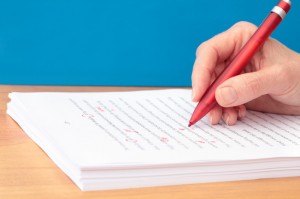 How do you revise a non-fiction book?
I have pondered this question over the last several months.
How do you revise a non-fiction book?
I have pondered this question over the last several months.
Writing my book proposal helped me figure out what stories and information I want to include in my book AMERICA’S FIRST GATEWAY. However, my book proposal did not lay out a clear plan for how I should revise my manuscript.
I finished my book proposal in late September 2013 and since that time I have worked on freelance articles, blog posts, and an academic journal article.
I finished the journal article 2 weeks ago, which means that I finally have to start revising my book, not just talk about it.
Last week I willed myself to start revising.
I opened my book proposal, read through my Chapter 1 description, and dissected it.
I outlined all of the major topics and subtopics for the chapter. Under my subtopics I listed all of the books and article titles that I need to read/skim to write about that subtopic.
This week, I began reading books and articles that will help me find the information I need to revise Chapter 1.
Experimentation
I do not know how long it will take me to revise my book. I do know I want to work smarter than when I wrote my dissertation.
I am trying 3 new techniques to ensure that I write and make progress every day. (Okay, maybe not every day, but most days).
 Experiment 1: Early Morning Reading
Experiment 1: Early Morning Reading
Each morning I read.
I read an article or part of a book before I sit at my computer.
I love my computer, but it is a major source of distraction.
I used to start my day by checking e-mail, Twitter, and blog feeds. Inevitably, one or more of these items would distract me from the work I needed to do.
Now, I begin with reading, which helps me focus on work before I get distracted.
Experiment 2: Active Note Taking
After I read, I enter my notes into DEVONthink.
The process of typing my notes helps me consider the information I read. After this deliberation, I open Scrivener, click on the book/article card I created, and summarize the reading in my own words.
The act of summarizing ensures that I write every day.
I plan to use my summaries as reference material when I write each subsection.
 Experiment 3: Increased Accountability
Experiment 3: Increased Accountability
Progress requires action. It also commands accountability.
I will make myself accountable to others.
I will make weekly progress reports to my writing coach and update my writing group during our bi-weekly meetings.
I will also blog about my revisions work.
Conclusion
I am not sure if my revisions plan is the best plan, but it is one that will help me make steady progress.
 What Do You Suggest?
What Do You Suggest?
How have you (do you) approach your long-term writing projects?
Do you have a system or technique that allows you to make steady progress?
